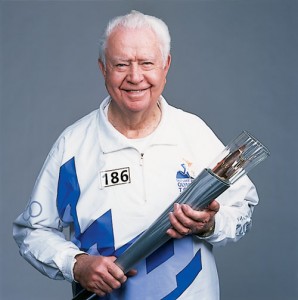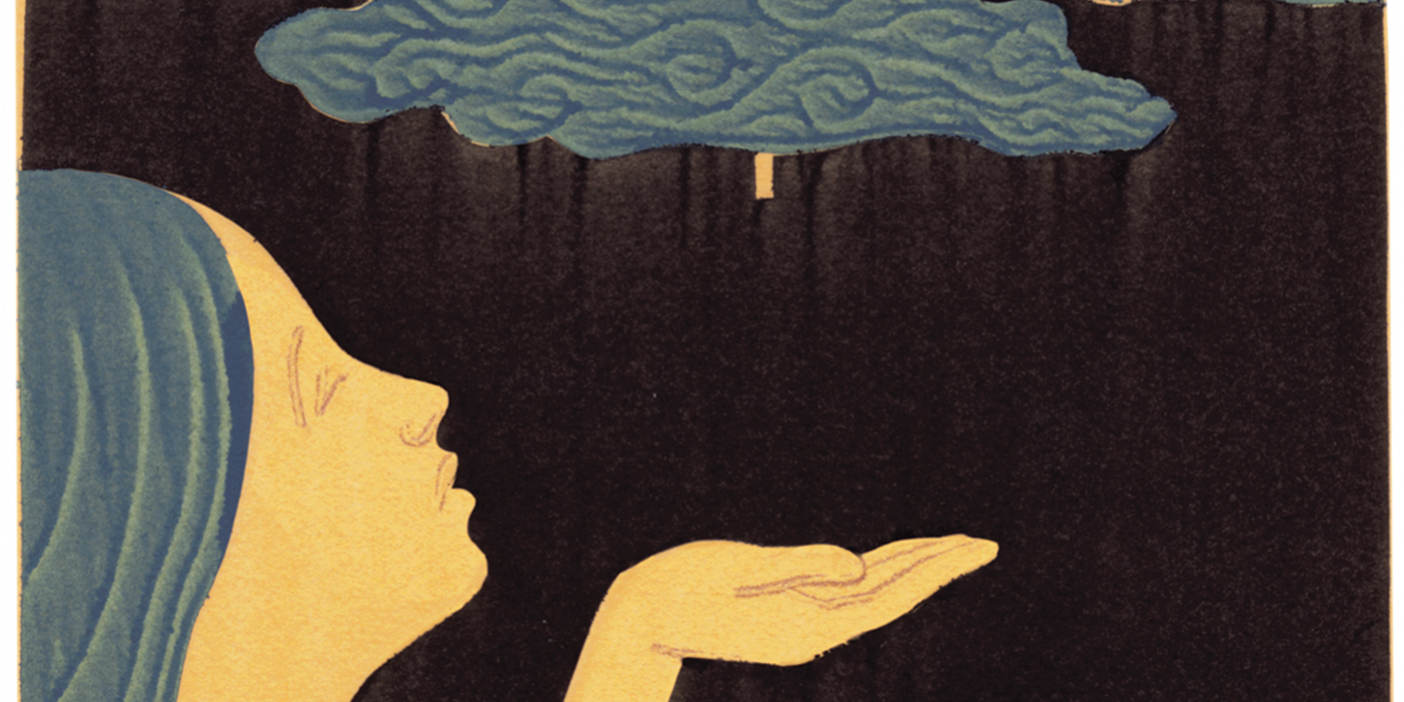
Clarence Robison cherishes the experiences he had as an Olympic athlete in 1948 and as a torchbearer for the 2002 Games.
By Aimee H. Hansen, ‘02
THE 2002 Winter Games have come and gone, but for Leonard R. Moon, a BYU admissions office employee, Olympic memories will always linger. As a troubleshooter for the torch relay, Moon accompanied the Olympic flame every mile of its journey through the United States. “I drove 19,420 miles in 65 days,” Moon explains. “We started in Atlanta on Dec. 4, and, after passing the torch to more than 11,500 torchbearers, we got into Salt Lake on Feb. 8.”
“It was a very inspirational trip,” Moon says. “Everywhere we went there were big crowds. It was what I call the healing of a nation. After what happened on Sept. 11, it was really good to have people come together. Anywhere we went, any little community or any big city, we found people excited about the torch. We never had one place in all the 46 states we went to where there weren’t just huge crowds.”
Clarence F. Robison, ’49, a 1948 Olympian and former BYU men’s track coach, carried the torch in Provo. Like Moon, Robison recognizes the power of the Olympic spirit. “Through the years I’ve carried a wonderful feeling that the Olympic Games are not only the greatest of championships, but they bring out the very best in athletes, coaches, and spectators,” he says. “They have a flavor and influence all their own.”
Robison adds, “I believe that the Olympics bring out the best in fair play and honesty. There are relationships created as athletes stand on those award stands. They don’t only shake hands; they weep on each other’s shoulders, friends for life. Great things happen behind the scenes—and before the world—in the Olympic Games.”









